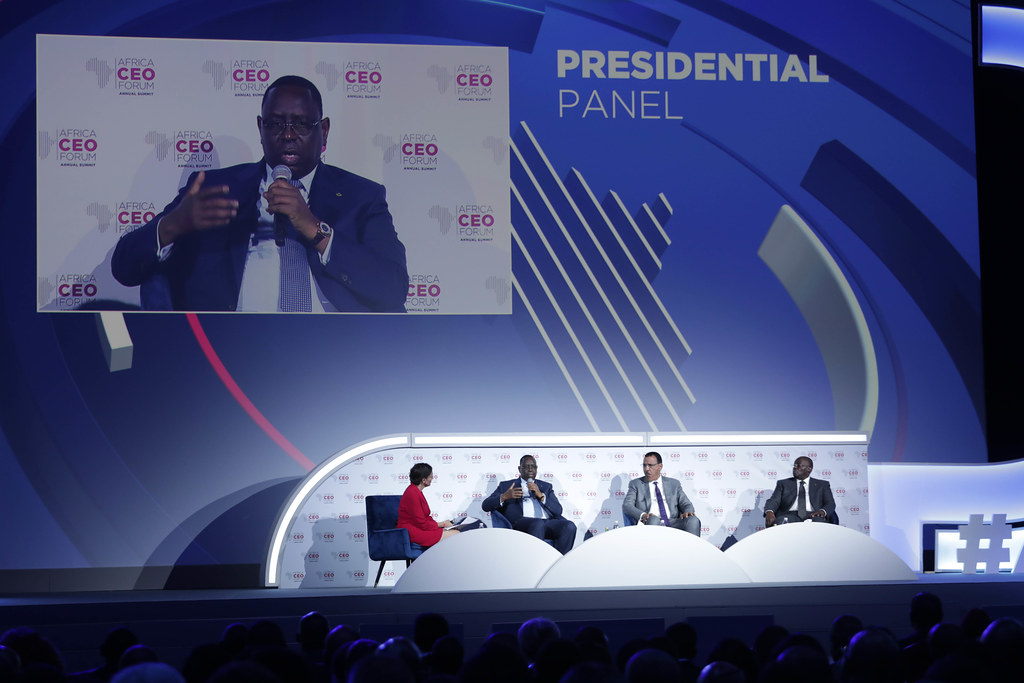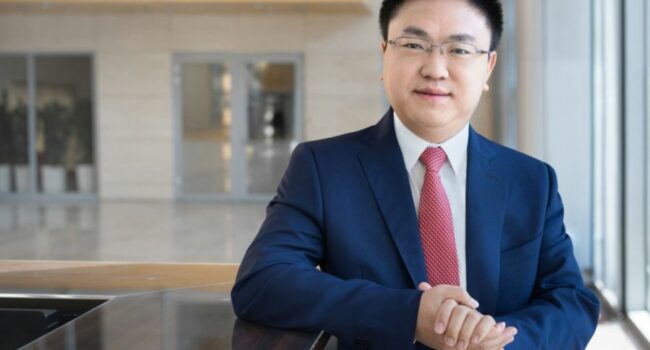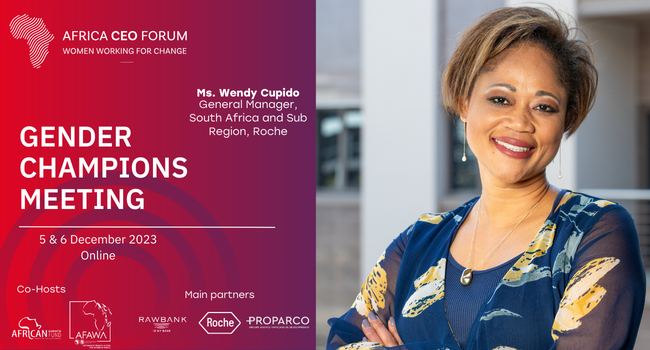
Macky Sall, President of the Republic of Senegal
On 14 June, the final day of AFRICA CEO FORUM 2022, Senegalese President Macky Sall, Nigerien President Mohamed Bazoum and newly elected Ivorian Vice President Tiémoko Meyliet Koné participated in a high-level panel.
The Covid-19 crisis, which severely impacted the world in 2020 and 2021, immediately gave way to a Ukrainian crisis that has only worsened tensions and fears. Even though the continent is hundreds of miles away from the scene of the conflict, African people are feeling its effects at the pumps and in their kitchens, as wheat is growing scarcer and oil prices are on the rise.
AFRICA CEO FORUM 2022, which took place on 13 and 14 June in Abidjan, sought to discuss this and other matters such as climate change and safety, which are among the most concerning issues for the continent. Does Africa have the means to overcome these crises whose effects will surely be devastating? Who better than the heads of African countries to answer these questions?
Senegalese President Macky Sall, who is also the Chairperson of the African Union, Nigerien President Mohamed Bazoum and Ivorian Vice President Tiémoko Meyliet Koné had the opportunity to share their thoughts during the closing presidential panel.
President Macky Sall believes that we should not be afraid of the crises, particularly the looming food crisis due to the war in Ukraine, but that we should make plans and take action by financing the agricultural sector. “Food insecurity in Africa existed long before the war in Ukraine because our subsistence farming sector was underdeveloped. But the situation worsened with the conflict. We need substantial investments in the agricultural sector, which currently does not have sufficient funding to face the impacts. We need access to long-term financing and not only concessional loans, which are unable to meet the needs of our economies (…). Also, we can only face the food crisis if we work together”, the Senegalese head of state commented.
Only a few days ago, Sall met with Vladimir Putin in Russia for talks on allowing wheat and fertiliser exports, which are primarily produced in Ukraine and Russia, as the food crisis would only deepen if these were blocked. “We need to find ways to import wheat, or alternatively, fertiliser. Our soil is in dire need, especially since the rainy season will begin soon in many African countries, which is when crops will start to grow”, he said.
Niger is one such country that is threatened by the food crisis. Nigerien President Mohamed Bazoum spoke about the four-to-five million people affected by food insecurity due to the war in Ukraine, and how it has seriously disrupted supply chains and caused food shortages around the world. He considers that it is “useful” for the issue to be discussed at the AFRICA CEO FORUM. A more optimistic President Alassane Ouattara, while showcasing the solidarity plan in place in his own country, called for the implementation of a much larger solidarity programme.
On the matter of the food crisis, Ivorian Vice President Tiémoko Meyliet Koné said he was pleased with the “success” of the planning and emergency measures taken by his country’s government. “It is costly to the country, but we are seeing good results”, he boasted. But he believes that the agriculture sector in Côte d’Ivoire and other countries in Africa in general must free itself from seasonality, and learn how to manage water resources to become self-sufficient.
Speaking on climate change, Koné congratulated his country’s leadership on “successfully organising” the COP15 session on combatting desertification held in May. He spoke highly of the Abidjan Legacy Programme that will allow Côte d’Ivoire to restore a large part of its lost forest area. The programme will serve as an example across the world of how countries can fight climate change.
“We are pleased because we have rolled out real solutions that allow women to own property and that aid in the development of the job market. Furthermore, COP15 gave rise to the Abidjan Legacy Programme, which aims to promote reforestation and tackle desertification”, he said.
In his call for greater financial and logistical involvement from the international community to help African countries fight terrorism, President Sall spoke on what he called climate injustice. For him, it is asking too much of the continent to completely replace fossil fuels with clean energy at a time when Africa must face a wide range of challenges and crises. This was echoed by his Nigerien counterpart Mohamed Bazoum. Sall intends to speak on this injustice at the COP27 to be held in Sharm el-Sheikh in Egypt.
On terrorism, the Nigerien head of state insisted that one of the potential solutions for his country involved instilling proper governance that makes institutions solid and stable, even though calling on military forces was a viable option.
Faustin Ehouman



